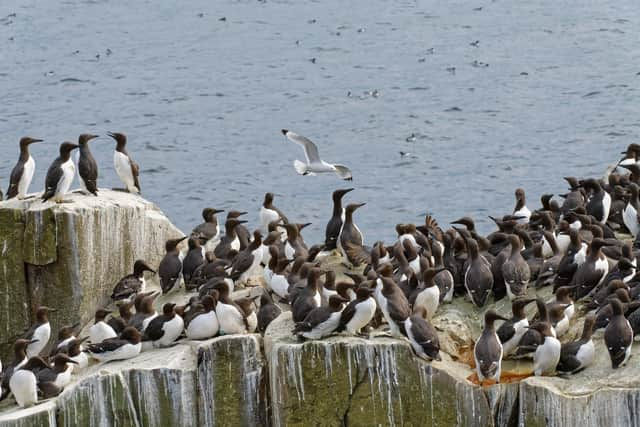Renewed appeal not pick up sick or dead birds due to avian flu outbreak across Northumberland
This article contains affiliate links. We may earn a small commission on items purchased through this article, but that does not affect our editorial judgement.
and live on Freeview channel 276
The disease has struck Coquet Island – home to an estimated 82,000 seabirds, most notably the endangered puffin and roseate tern, and it is devastating bird populations across the county.
Dozens of dead sea birds have been found on beaches at Amble, Druridge, Newbiggin, Warkworth, Cresswell and Seaton Sluice, among others.
Advertisement
Hide AdAdvertisement
Hide AdTesting carried out by the Department for Environment, Food and Rural Affairs (DEFRA) has confirmed they died from bird flu.


The dangerous virus circulates naturally in wild birds, and upon migrating to the UK from mainland Europe over the winter, the birds can spread the disease to poultry such as chickens, turkeys, geese and ducks within the UK.
Boat landings have been suspended at the Farne Islands to protect its precious seabird colonies. A spokesman said: “We understand how many people love to visit the islands, but we must do everything we can to protect and to try to help these much-loved seabirds by limiting the spread of the disease.”
Elizabeth Morgan, director of public health at Northumberland County Council, said: “I want to reassure residents that the risk to public health from avian flu is very low.
Advertisement
Hide AdAdvertisement
Hide Ad“The discovery of dead birds is always upsetting, but it is really important that people do not pick up or touch any sick or dead birds to avoid spreading the virus, which can affect humans in rare cases.
The public has also been urged to keep their pet dogs away from any dead or sick birds in order to reduce the risk of exposing their dog to the virus.
However, the risk to pet dogs from avian influenza is usually very low.
Last month the RSPB urged the government to come up with a plan to deal with the growing problem but as yet, a strategy has not been announced.
Advertisement
Hide AdAdvertisement
Hide AdFor more information on how to dispose of diseased birds, visit https://www.gov.uk/guidance/animal-by-product-categories-site-approval-hygiene-and-disposal.
Alternatively, if you would like to find out more on the RSPB and are interested in joining, visit https://www.rspb.org.uk/join-and-donate/join-us-today/?
If DEFRA says it does not intend to collect any dead birds, contact the council’s customer services department on 0345 600 6400.